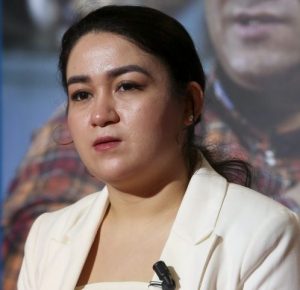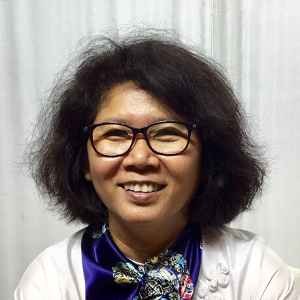[VIRTUAL] Freedom to Write Index 2021: Tracking Jailed Writers and Public Intellectuals Around the World
Throughout 2021, the world heard echoes of history as a global resurgence of authoritarianism brought sweeping crackdowns on writers and cultural spaces, with regimes seeking to reclaim powers and territories by invoking fear and shutting down dissent. The Freedom to Write Index 2021 details the growing threats to free expression around the world by analyzing key cases among the 277 writers and public intellectuals in jail during 2021 and the countries in which the freedom to write is particularly under threat. In the face of rising authoritarianism, the voices of writers are indispensable in helping us to imagine the light at the end of the tunnel, and the freedom to write has never been more essential to protect.
Join PEN America, writers who have been jailed for their work, and their family to discuss the Freedom to Write Index 2021, an annually published report that tracks writers and public intellectuals held in prison or detention around the world.
PEN Belarus President Taciana Niadbaj opens the panel with special remarks on the importance of tracking threats to writers and violations of free expression in Belarus and around the world. PEN America’s Karin Deutsch Karlekar discusses the Freedom to Write Index 2021’s findings; followed by a panel discussion with Jewher Ilham, advocate and eldest daughter of imprisoned Uyghur writer-academic Ilham Tohti; Ma Thida, a Burmese writer and human rights advocate; Nima Ghasemi, an Iranian writer and philosophy researcher who was detained in February 2021; and Kakwenza Rukirabashaija, a Ugandan novelist who has been detained three times in the last two years for his satirical fiction and writing.
PEN America is deeply grateful to the John Templeton Foundation for its generous support of the Freedom to Write Index.
Remarks By
 Taciana Niadbaj is the President of PEN Belarus, a writer, and a human rights activist. Niadbaj has studied in Minsk, Belarus; in Vilnius, Lithuania; and in Lublin, Poland. She worked in Warsaw, Poland for several years before returning to Belarus in 2015, when she worked for independent media with the Press Club Belarus and in the literary, cultural, and human rights fields through her work with PEN Belarus. As the President of PEN Belarus, Niadbaj coordinates cultural, media, and publishing projects. Niadbaj is also the author of Sirens Singing Jazz (Polotsk Labyrinths, 2014), for which she received the Maksim Bahdanovič Debut Award. She has also authored and co-authored translations of numerous works into Belarusian, including Eva Thompson’s Songwriters of the Empire: Russian Literature and Colonialism, Lešak Kalakoŭski’s Our Merry Apocalypse, and Anna Bužyńska and Michal Paviel Markoŭski’s Twentieth-Century Literary Theories. Read her written remarks.
Taciana Niadbaj is the President of PEN Belarus, a writer, and a human rights activist. Niadbaj has studied in Minsk, Belarus; in Vilnius, Lithuania; and in Lublin, Poland. She worked in Warsaw, Poland for several years before returning to Belarus in 2015, when she worked for independent media with the Press Club Belarus and in the literary, cultural, and human rights fields through her work with PEN Belarus. As the President of PEN Belarus, Niadbaj coordinates cultural, media, and publishing projects. Niadbaj is also the author of Sirens Singing Jazz (Polotsk Labyrinths, 2014), for which she received the Maksim Bahdanovič Debut Award. She has also authored and co-authored translations of numerous works into Belarusian, including Eva Thompson’s Songwriters of the Empire: Russian Literature and Colonialism, Lešak Kalakoŭski’s Our Merry Apocalypse, and Anna Bužyńska and Michal Paviel Markoŭski’s Twentieth-Century Literary Theories. Read her written remarks.
PANELISTS
 Nima Ghasemi is an Iranian writer who holds a PhD in philosophy from Shahid Beheshti University in Tehran and conducts research in the subject. His writings have been published in journals such as Ghalamyaran (نشریهٔ قلمیاران), including one of his recent works titled “A Typology of Philosophical Thought from the Perspective of Ernest Cassirer.” Dr. Ghasemi was arrested without reason in February 2021 at his home, where security forces also confiscated his laptop and manuscripts. Dr. Ghasemi was released on bail after over a month in detention, spending over 20 days in solitary confinement. In November 2021, he was convicted of “conspiracy” and “propaganda against the system,” which are commonly levied by Iranian courts to criminalize free expression, and sentenced to nearly five years in prison for his scholarly articles and online writings. He currently resides outside of Iran, fleeing the repression and unjust prison sentence that remains should he return.
Nima Ghasemi is an Iranian writer who holds a PhD in philosophy from Shahid Beheshti University in Tehran and conducts research in the subject. His writings have been published in journals such as Ghalamyaran (نشریهٔ قلمیاران), including one of his recent works titled “A Typology of Philosophical Thought from the Perspective of Ernest Cassirer.” Dr. Ghasemi was arrested without reason in February 2021 at his home, where security forces also confiscated his laptop and manuscripts. Dr. Ghasemi was released on bail after over a month in detention, spending over 20 days in solitary confinement. In November 2021, he was convicted of “conspiracy” and “propaganda against the system,” which are commonly levied by Iranian courts to criminalize free expression, and sentenced to nearly five years in prison for his scholarly articles and online writings. He currently resides outside of Iran, fleeing the repression and unjust prison sentence that remains should he return.
 Jewher Ilham is the eldest daughter of imprisoned Uyghur writer and academic Ilham Tohti. Tohti has been imprisoned in China since 2014, serving a life sentence on charges of “separatism” related to his writing on Uyghurbiz, a website he co-founded to promote cultural and political understanding between minority Uyghurs and Han Chinese. Chinese authorities have held Tohti incommunicado since 2017, prohibiting Ilham from visiting or speaking with her father. She lives in self-exile in the United States and advocates tirelessly for her father’s release on the international stage. Ilham has shared her father’s story before the European Parliament, accepting the Sakharov Prize for Freedom of Thought from the European Parliament in Strasbourg in December 2019, and a number of prestigious awards from multiple nongovernmental human rights organizations. Tohti is the 2014 PEN/Barbara Goldsmith Freedom to Write honoree. Jewher Ilham is the author of Because I Have To: The Path To Survival, The Uyghur Struggle, an intimate account of how she maintains the strength and courage to fight for her father.
Jewher Ilham is the eldest daughter of imprisoned Uyghur writer and academic Ilham Tohti. Tohti has been imprisoned in China since 2014, serving a life sentence on charges of “separatism” related to his writing on Uyghurbiz, a website he co-founded to promote cultural and political understanding between minority Uyghurs and Han Chinese. Chinese authorities have held Tohti incommunicado since 2017, prohibiting Ilham from visiting or speaking with her father. She lives in self-exile in the United States and advocates tirelessly for her father’s release on the international stage. Ilham has shared her father’s story before the European Parliament, accepting the Sakharov Prize for Freedom of Thought from the European Parliament in Strasbourg in December 2019, and a number of prestigious awards from multiple nongovernmental human rights organizations. Tohti is the 2014 PEN/Barbara Goldsmith Freedom to Write honoree. Jewher Ilham is the author of Because I Have To: The Path To Survival, The Uyghur Struggle, an intimate account of how she maintains the strength and courage to fight for her father.
 Kakwenza Rukirabashaija is an award-winning Ugandan author whose satirical novels and online writings on human rights and free expression have made him both an essential literary voice and a target of Ugandan President Yoweri Museveni. He is the author of The Greedy Barbarian, a novel exploring themes of high-level corruption in a fictional country for which he was detained, interrogated, and tortured in April 2020. Three months later, Rukirabashaija published an account of his torture during detention in his book Banana Republic: Where Writing Is Treasonous. Less than two months after receiving the PEN Pinter Prize International Writer of Courage Award from English PEN in October 2021, he was detained for a third time and again tortured in retaliation for his writing. In early 2022, Rukirabashaija fled Uganda under continued threats against his life and to receive medical treatment for the torture he endured. He is taking part in PEN’s Writers-in-Exile program in Germany, where he currently resides.
Kakwenza Rukirabashaija is an award-winning Ugandan author whose satirical novels and online writings on human rights and free expression have made him both an essential literary voice and a target of Ugandan President Yoweri Museveni. He is the author of The Greedy Barbarian, a novel exploring themes of high-level corruption in a fictional country for which he was detained, interrogated, and tortured in April 2020. Three months later, Rukirabashaija published an account of his torture during detention in his book Banana Republic: Where Writing Is Treasonous. Less than two months after receiving the PEN Pinter Prize International Writer of Courage Award from English PEN in October 2021, he was detained for a third time and again tortured in retaliation for his writing. In early 2022, Rukirabashaija fled Uganda under continued threats against his life and to receive medical treatment for the torture he endured. He is taking part in PEN’s Writers-in-Exile program in Germany, where he currently resides.

Ma Thida is a Burmese writer, human rights activist, and surgeon who has published over nine books in both Burmese and English. A trained physician who formerly volunteered at a charity clinic during the ’80s, Thida began writing to share her observations of political issues such as poverty. She soon gained a reputation as a progressive writer and leading intellectual in Myanmar, making her a target of the then-military government. An assistant to Aung San Suu Kyi’s campaign during the 1990 general election, Thida’s experience in the campaign inspired her first book The Sunflower, which was banned in the early 1990s. In 1993, she was arrested and sentenced to 20 years in Insein Prison on the charges of “endangering public peace, having contact with illegal organizations, and distributing unlawful literature.” In 1996, she was the recipient of the PEN/Barbara Goldsmith Freedom to Write Award, but she was not released until 1999—after serving six years in harsh conditions—on humanitarian grounds due in part to her declining health, international pressure, and advocacy on the part of human rights organizations like Amnesty International and the PEN network.
 Karin Deutsch Karlekar is the director of PEN America’s Free Expression at Risk Programs, and leads PEN America’s assistance to individuals at risk as a result of their expression and an ongoing partnership with PEN Myanmar. She has two decades of experience in global free expression, press freedom, and digital rights issues, as well as advocacy and assistance work on behalf of writers, bloggers, and journalists. In addition to acting as an expert spokesperson on press freedom issues at conferences, meetings, and in media appearances, Dr. Karlekar has developed index methodologies and conducted training sessions on press freedom, internet freedom, freedom of expression, and monitoring dangerous speech; authored a number of special reports and academic papers; and conducted research, assessment, and advocacy missions to Nigeria, South Africa, Uganda, Zambia, Zimbabwe, Afghanistan, Indonesia, Myanmar, Pakistan, and Sri Lanka.
Karin Deutsch Karlekar is the director of PEN America’s Free Expression at Risk Programs, and leads PEN America’s assistance to individuals at risk as a result of their expression and an ongoing partnership with PEN Myanmar. She has two decades of experience in global free expression, press freedom, and digital rights issues, as well as advocacy and assistance work on behalf of writers, bloggers, and journalists. In addition to acting as an expert spokesperson on press freedom issues at conferences, meetings, and in media appearances, Dr. Karlekar has developed index methodologies and conducted training sessions on press freedom, internet freedom, freedom of expression, and monitoring dangerous speech; authored a number of special reports and academic papers; and conducted research, assessment, and advocacy missions to Nigeria, South Africa, Uganda, Zambia, Zimbabwe, Afghanistan, Indonesia, Myanmar, Pakistan, and Sri Lanka.
Moderator

Nadine Farid Johnson is the director of PEN America’s Washington D.C. office. An attorney and advocate with a focus in democracy, human rights, and governance, she has a breadth of experience across the public, private, and nonprofit sectors. Most recently, she served as executive director of the ACLU of Kansas, where she led the expansion of the affiliate’s advocacy, reach, and impact. She is a former United States diplomat whose work spanned the Middle East, Africa, Europe, and multilateral affairs. Prior to entering public service, she was a professor of constitutional, international, and intellectual property law at Gonzaga University and a Climenko Fellow and Lecturer on Law at Harvard Law School.
Written Remarks
By Taciana Niadbaj
Taciana Niadbaj, PEN Belarus: Hello everybody. Thank you so much for having me. My colleagues at Belarus and I are personally glad to be part of such an important document as the Freedom to Write Index.
It is important that PEN America not only draws attention to the problem of freedom of speech in Belarus, but also helps to talk about this problem. As you may know, for the second year in a row, Belarus is among the anti-top countries in terms of the number of writers behind bars. It is a great strategy for us to talk about artists in this way, then to call out and to promote their words.
I would now like to share some conclusions from [PEN Belarus’s] latest monitoring of cultural and human rights violations against cultural workers.
As for the end of April 2022, there are more than 1,110 political prisoners in Belarus. Among them, 79 are cultural figures. A total of 98 cultural figures are imprisoned or on house arrest.
The Belarusian authorities continue to dismiss all those who are disloyal to the Russian regime, state educational and cultural institutions fire all those who have spoken out against the repressive regime and more. Intellectuals, teachers, musicians, artists, and tour guides, separate, are under attack.
The authorities continue to put pressure on NGOs. As of the end of March 2022, 382 Belarusian nonprofit organizations have been liquidated. No less than 98 are directly related to the field directly related to the field of culture.
In addition, on January 22, a law came into force that introduced the liability for organizing the activities to participate and the activities of a public association that has a decision to liquidate. It is, for example, our PEN Belarus, which was liquidated in the last year, and now all activities connected with PEN Belarus are illegal in Belarus. This can now be punishable by a fine or arrest for up to three months, or imprisonment for up to two years. Our report will be in English, it will appear in a few days on the PEN Belarus website, at PENBelarus.org.
And in the speech, in the end of the speech, I express my solidarity with all the countries with all cultural communities from other countries who became the leaders of the Index this year; as well as of course with the Ukrainian cultural community, which is now suffering because of the war. Thank you so much for the possibility to say these words, and good luck to everybody.






